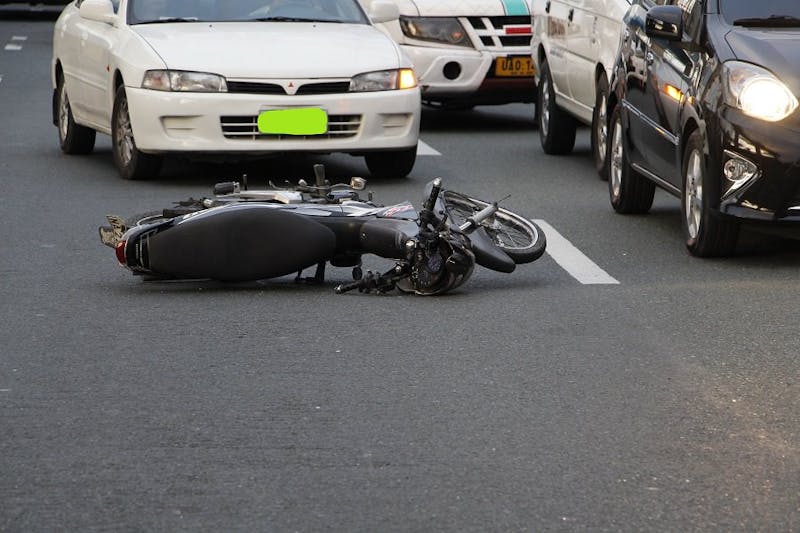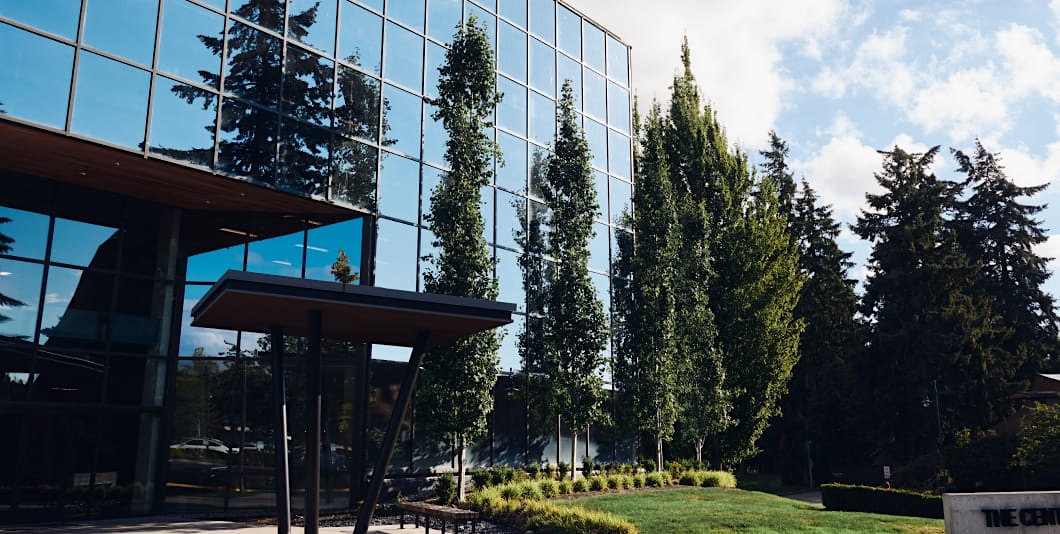
Surviving a motorcycle accident may leave you and your family in a state of shock—not only from the accident, but also from the time, cost, and frustrations associated with your recovery. Even in the best-case scenario, many people who experience a motorcycle accident will find themselves dealing with the physical, financial, and emotional fallout for months or even years. With so much on your plate, the last thing you need is to negotiate with an insurance company—and deal with the systemic bias against motorcyclists that seems baked into how insurance companies operate.
Because of that bias, you need to arm yourself with the vital information that will make your claim as strong as possible.
As soon as possible after your accident:
- Get medical attention, and ask your treating physicians to document each of your injuries in detail;
- Collect whatever information you can about the accident, including the police report and any witness statements;
- Engage an experienced, compassionate motorcycle accident attorney who will protect your rights.
When you retain a motorcycle accident attorney, you’ll have a staunch advocate looking out for you. While you recuperate, your attorney will work with your insurance company, file your initial claim, submit the appropriate supporting documentation, manage the accident investigation, and even represent you in court if necessary. The right representation will protect you and your rights every step of the way. A motorcycle accident lawyer can help.
Common Causes of Motorcycle Collisions
While motorcycles constitute a small percentage of registered vehicles in the United States, they cause a disproportionate number of overall traffic-related injuries and fatalities. Recognizing the most common causes of these accidents can help you determine how to approach your claim for damages after an accident.
The National Highway Traffic Safety Administration (NHTSA) identifies no typical motorcycle collisions. Rather, it argues, motorcycle crashes involve a unique interaction of complex human, vehicle, and environmental factors. It does note that severe injuries form a common denominator in motorcycle accidents.
When a motorcycle collides with another vehicle or stationary object, or spins out of control, and the accident ejects riders and their passengers from the bike, little can stop or protect them as they forcibly strike the hard surface of the road or whatever they land on—motorcycles contain no airbags, protective metal shell, or impact-resistant seats. The absence of any barrier makes the severe injury and fatality rates for motorcycle collisions consistently high.
When you dive into the human, vehicle, and environmental factors underlying most motorcycle accidents, however, you can see some commonalities.
Inattention
You see it every day on the road: car drivers engage with everything but the wheel. They fiddle with the stereo, talk to passengers, or, worse, tap away on their smartphones.
As a driver, when your attention shifts elsewhere, you cannot see smaller vehicles like motorcycles. But distracted driving can occur even with a driver’s eyes squarely on the road.
Emotional distress or fatigue can also cause drivers to lose attention, whether they’re stressed and preoccupied with a situation at work, fighting with their significant other, or just drifting into a daydream. When a driver in that state doesn’t give the road the full attention it deserves, they can kill motorcyclists. Far too often, motorists who collide with motorcycles claim they didn’t see the bike. They say it seemed to come out of nowhere. But more often than not, they simply didn’t pay attention.
Speeding and Reckless Driving
An inattentive driver can easily let their car or truck get up to dangerously high speeds, especially on the highway. The driver of a car barrelling along in excess of posted speed limits has less time to react when they see obstacles or other problems and requires more time and distance to stop. And the higher the velocity of a car or truck, the greater the force of its impact when it strikes another object.
In other words: The faster the car or truck that hits a motorcyclist is going at the time of impact, the worse the accident—and injuries.
Inattention isn’t the only reason drivers speed. Sometimes, they know full well how fast they’re going. They might be running late for an appointment or frustrated and feeling trapped by drivers around them going the speed limit. Maybe they feel a genuine sense of emergency, or maybe they’re just doing it for the thrill. Whatever the reason—in the end, it doesn’t really matter—driving at high speed is reckless.
Given motorcycles’ smaller vehicle profile and lack of a protective barrier, cars and trucks breaking the speed limit pose an even greater risk to a motorcyclist’s safety than a car or truck traveling at normal speed—and that’s already risky enough.
Alcohol or Drug Use
Alcohol and drug use can also cause motorcycle accidents. Intoxicants and stimulants of every kind can cause a car or truck driver to drive recklessly and fast. Even if a driver doesn’t speed, the drugs or alcohol in their system can compromise their vision, slow their reaction time, and impair their common sense and good judgment.
Some substances are likely to make vehicle operators more aggressive and inclined to dangerously tailgate or harass other motorists, including motorcyclists. (And no, marijuana isn’t exempt from the substances that can lead to hazardous driving. The NHTSA provides a good overview of the research.)
Weather
According to a Federal Highway Administration report, driving inappropriately in bad weather causes roughly 21 percent of the nearly six million vehicle crashes in the U.S. every year are caused by bad weather. Just over 70 percent of these result under rainy skies and on wet pavement.
Responsible drivers proceed cautiously under bad conditions. In poor visibility, they reduce their speed until they can see far enough ahead to stop if they encounter an obstacle. They know that reduced friction on wet streets means an increased risk of skidding and hydroplaning, both of which can propel their vehicle out of their control and into nearby cars, structures, pedestrians, and motorcyclists.
Motorcycle accidents in bad weather aren’t acts of God—often, they result from car and truck drivers refusing to modify their normal driving style to suit the conditions.
Dangerous Road Conditions
Poorly maintained medians. Gravel or construction debris. Lack of guardrails. Cracks or uneven payment. Poor lighting. All of these can create dangerous conditions for drivers, who can lose control of their vehicles and hit motorcyclists. These hazards can cause motorcyclists to crash.
Municipalities must keep their roads well-maintained and safe for all users. Failure to do so can result in horrific injuries—and fatalities.
Other Factors
Other important factors may have played a role in your accident—and, consequently, in your negotiations with the insurance company. That’s why you need to gather as much information about your accident as possible. In the hands of an experienced motorcycle accident attorney, this information can yield the important details that support your claim—and ensure you receive the damages you need and deserve.
Maximizing Your Success
After your motorcycle accident, you may deserve compensation for damage or injuries.
The first step to getting that compensation involves submitting a claim to the appropriate insurance company. After reviewing your claim, the insurer may offer you a settlement for a sum considerably less than your claimed losses.
You don’t have to accept the offer, especially if it won’t cover your medical bills, the damage to your bike, the income you might have lost, and other accident-related expenses. If you and the insurance company can’t come to a fair settlement, you may take them to court.
This is why you need a trusted, experienced motorcycle accident attorney at your side from the very beginning. The right advisor will know how to navigate the policies and procedures that govern the claims process and can guide you at every step.
The Damages to Expect in a Motorcycle Collision
After a motorcycle accident, you may recover compensation for your:
- Medical damages. If a motorcycle accident injures you, you can recover compensation for ambulance transportation, emergency room care, hospitalization, diagnostic imaging, surgery, physical therapy, long-term disability and more. An attorney can ensure any settlement offer includes these important damages so you aren’t left holding the bag when the bills come due.
- Lost earnings – now and in the future. A motorcycle accident survivor may find they cannot work for some time after a collision. Your settlement should include damages for lost earnings, now and in the future.
- Pain and suffering. Many individuals who live through motorcycle accidents end up with chronic pain. If your accident left you with chronic pain or mobility issues or caused other suffering, you should recover compensation for it.
Insurance representatives too often leave out important information about the compensation motorcyclists deserve after a collision. An experienced motorcycle accident attorney will know what’s available to you and can work with the insurance company to ensure a fair and transparent settlement.
The Complexity of Motorcycle Collisions
For a series of reasons, filing an insurance claim in a motorcycle claim isn’t always a straightforward process:
- Medical complexity. The fact that motorcycles are smaller than the average vehicle means that many accidents result in severe or life-threatening injuries. From your treatment in the emergency room to any necessary long-term rehabilitation or physical therapy services, you could receive hundreds of thousands of dollars in medical bills.
- Collision complexity. Motorcycle crashes can involve multiple parties, road hazards, or other factors. A motorcycle accident lawyer can fully investigate and evaluate each of these variables.
- Insurance legal teams. Insurance companies have departments dedicated to making the legal case for minimizing payouts. Their lawyers will do everything they can to translate the vulnerabilities of riding a motorcycle into the motorcyclist’s fault.
- Different laws. Different states have different laws governing motorcycle operation—including special licensing, rules of the road, statutes of limitations, and reporting requirements. These laws can sometimes affect how the insurance company processes your claim —and what damages you can recover.
- Anti-motorcycle bias. Let’s face it: People have preconceived notions about what kind of person rides a motorcycle. They may assume the operator is reckless, irresponsible, or automatically violated the rules of the road. Insurance companies share this bias, which affects how they adjudicate and negotiate claims.
Schedule a Consultation Today
Accidents involving motorcycles present special challenges. An experienced motorcycle accident attorney can take over the work of filing a claim and negotiating a settlement for you. Instead of spending your time tracking down police reports, arguing with insurance representatives, and managing your case if it goes to trial, you can concentrate on your recovery, your family, and your future.
You deserve compensation for all that you endured after a motorcycle accident. You deserve an attorney-advocate who has experience representing a wide variety of motorcycle accident survivors and helped them receive the damages they deserved. Look for a motorcycle accident who has helped hundreds of people just like you fight for their rights after a motorcycle accident—someone who stands ready, willing, and able to fight for you, too. Call a motorcycle accident attorney to discuss your case today.












